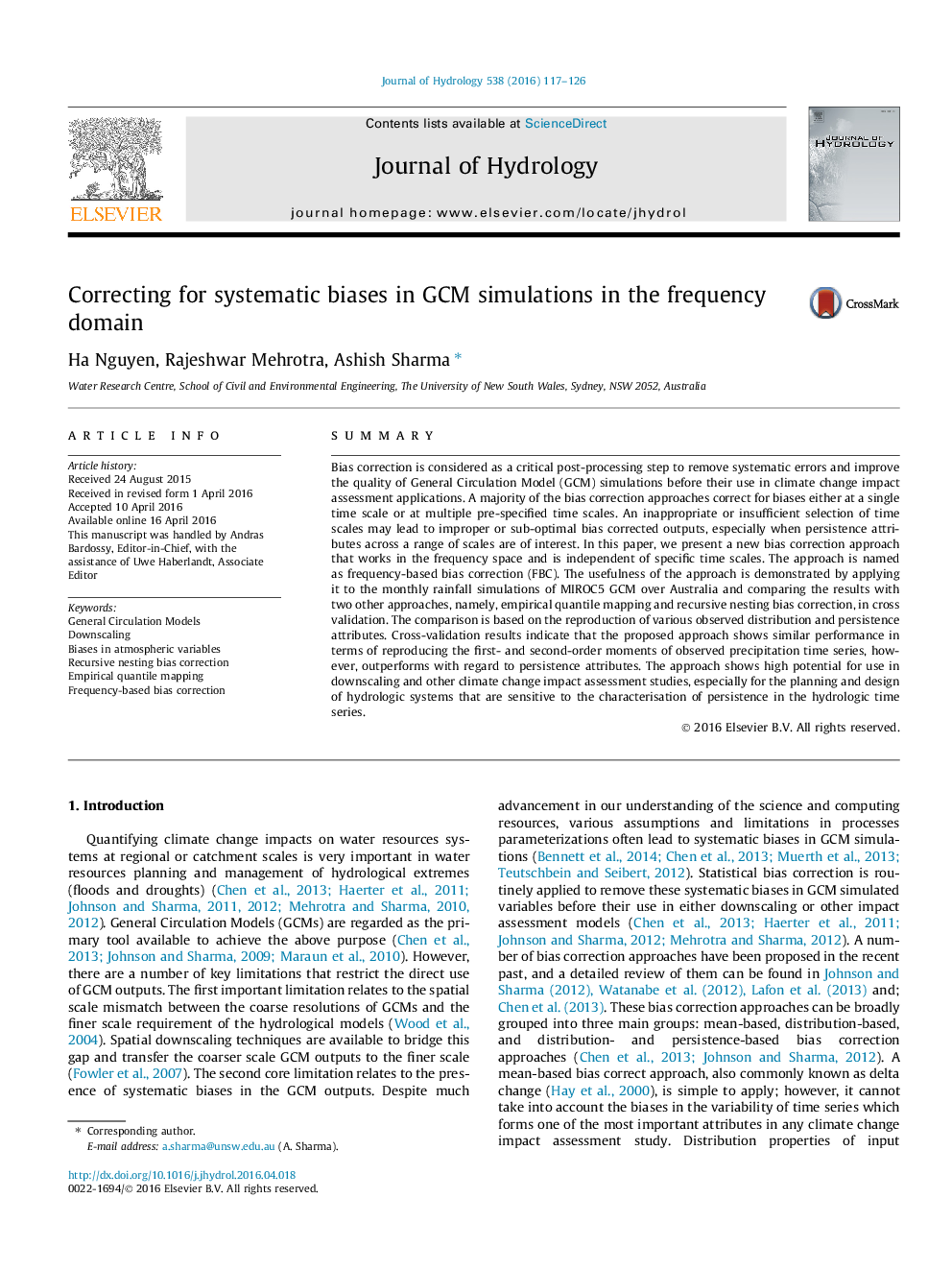| Article ID | Journal | Published Year | Pages | File Type |
|---|---|---|---|---|
| 6409585 | Journal of Hydrology | 2016 | 10 Pages |
â¢Correction of biases in the frequency domain.â¢Improves persistence attributes independent of timescales.â¢Of importance in applications where effect of low frequency variability is paramount.
SummaryBias correction is considered as a critical post-processing step to remove systematic errors and improve the quality of General Circulation Model (GCM) simulations before their use in climate change impact assessment applications. A majority of the bias correction approaches correct for biases either at a single time scale or at multiple pre-specified time scales. An inappropriate or insufficient selection of time scales may lead to improper or sub-optimal bias corrected outputs, especially when persistence attributes across a range of scales are of interest. In this paper, we present a new bias correction approach that works in the frequency space and is independent of specific time scales. The approach is named as frequency-based bias correction (FBC). The usefulness of the approach is demonstrated by applying it to the monthly rainfall simulations of MIROC5 GCM over Australia and comparing the results with two other approaches, namely, empirical quantile mapping and recursive nesting bias correction, in cross validation. The comparison is based on the reproduction of various observed distribution and persistence attributes. Cross-validation results indicate that the proposed approach shows similar performance in terms of reproducing the first- and second-order moments of observed precipitation time series, however, outperforms with regard to persistence attributes. The approach shows high potential for use in downscaling and other climate change impact assessment studies, especially for the planning and design of hydrologic systems that are sensitive to the characterisation of persistence in the hydrologic time series.
